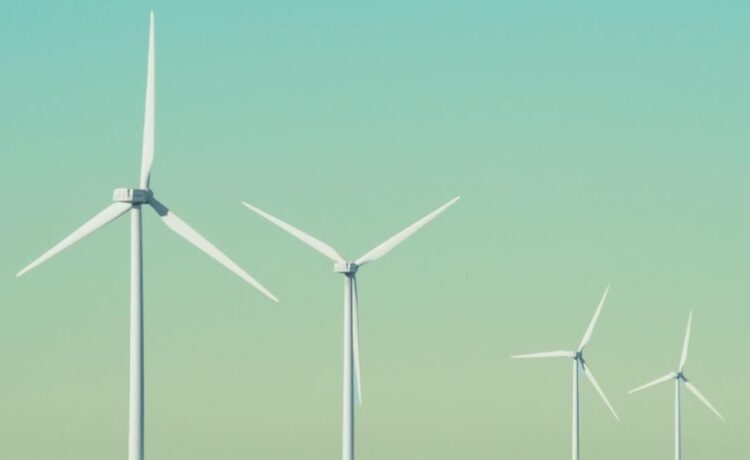Investments in clean energy are surging globally, and the momentum only seems to be accelerating as countries and companies alike gear up to meet ambitious climate goals. This unprecedented wave of capital is not just transforming landscapes; it’s creating jobs, driving innovation, and redefining the energy sector as the world pivots away from fossil fuels.
At the heart of this clean energy investment explosion is the Inflation Reduction Act (IRA) of 2022, passed by the U.S. government. The pivotal legislation has birthed over $140 billion worth of investments across more than 340 clean energy projects, significantly bolstering the U.S. position within the $20 trillion global green economy market. Figures show the act spurred 149,170 new jobs, indicating the energy sector’s operational might is far from stalling. Interestingly, about one-third of these projects are centered around electric vehicles, showcasing the act’s multifaceted impact on renewable energy initiatives.
Energy sectors across various states are witnessing landmark projects, from solar panel factories booming in Texas to cutting-edge battery plants flourishing in Georgia. This widespread coverage indicates local economies are experiencing substantial financial boosts as they transition to cleaner energy solutions. Jack Conness, policy analyst at Energy Innovation, affirmed, “This process will take time, but it has been an important start to diversifying clean energy manufacturing across the entire globe.” These sentiments echo sentiments expressed by industry experts worldwide, underlining the act’s potential for long-term transformation.
Across the Atlantic, the UK is expressing its commitment to green technologies with similar determination. Just before the anticipated International Investment Summit on October 14, UK Prime Minister Keir Starmer announced more than £24 billion worth of private investment flowing toward innovative energy projects. This massive financial influx is poised to create thousands of jobs across the green industries, reflecting both investor confidence and the government’s dedication to ushering growth. Companies like Iberdrola are doubling their investments with the UK government’s support, making the UK the largest investment destination for many energy firms.
Specific projects are already underway; Iberdrola has committed to invest £24 billion over the next four years, earmarking £4 billion for the East Anglia 2 wind farm, resulting from the most successful renewable auction round to date. Meanwhile, Ørsted and Greenvolt have also pledged to contribute significantly to offshore wind initiatives, which will create thousands of construction jobs and reinforce the UK’s position as a leader in this area.
SeAH Wind UK has declared plans for substantial investment, with £225 million dedicated to enhancing wind technology manufacturing capabilities. This expansion targets the establishment of one of the largest offshore wind facilities globally, underlining the thriving energy manufacturing sector. Simultaneously, Macquarie’s intended investment of £1.3 billion aims to develop green infrastructures, prompting initiatives like electric car charging installations across major UK motorways.
Meanwhile, across Southeast Asia, Leader Energy Group Berhad is riding the wave of this clean energy craze. The company secured over $100 million from the China-ASEAN Investment Cooperation Fund II, earmarking funds for their renewable power generation. Leader Energy, founded as recently as 2016, has quickly established itself as one of the region’s key players with over 550 megawatts of operating solar and hydro capacity and 235 kilometres of transmission lines. They aim to double their operational capacity over the next five years, demonstrating the swift expansion often seen within solar companies across the region.
CAF II, the fund backing Leader Energy, marks its second venture with energy assets following their initial partnership with Pertamina’s geothermal energy assets, highlighting continued efforts to bolster renewable initiatives across Asia. Dato’ Sean H’ng, co-CEO of Leader Energy, expressed gratitude toward CAF II, articulately tying the investment to their broader agenda of supporting the region’s transition to net-zero energy consumption.
Back to the UK, Prime Minister Starmer’s administration has prioritized not only investment and growth but also job creation across regions—from Yorkshire to Northern Scotland. The first meeting of the newly formed Council of Nations and Regions aims to unite leaders across the UK to strengthen opportunities for long-term investments. Starmer emphasized the importance of collaboration, asserting, “It is when we work together…that we can deliver the real change people want to see and improve opportunities for all.”
Simultaneously, industrial giants are making notable strides to support this energy transition. Holtec, for example, is focusing on establishing advanced nuclear facilities, underpinning the increasing push toward diverse energy sources. Their announced £325 million investment is expected to create thousands of high-paying engineering jobs, boosting the local economy substantially. Holtec projects tapping this trend have become intertwined with UK endeavors; structures built locally could support nuclear power stations such as Hinckley Point C.
Other noteworthy investments include BW Group planning to create new energy storage capacities worth £300 million and their strategic decision to back two large battery projects along the Midlands. These projects aim to bolster the UK’s energy storage capabilities—an often-overlooked yet necessary aspect of transitioning fully to renewable energy sources, which are inherently intermittent.
The breadth of investment within the clean energy sector highlights not just how renewable technologies can facilitate environmental benefits but also how they create expansive economic opportunities. The coordinated strategies adopted by international players and local governments reflect substantial alignment with future energy goals.
While signs of growth and innovation pervade the industry, what remains to be seen is how each of these initiatives will materialize and adapt over time, especially with the specter of political uncertainty continuously loitering over projects. The IRR’s framework provides hope, but future implementation will require vigilance.
Across the globe, from North America to Europe and Asia, the clean energy investment surge signals not only ambitious climate commitments but promises of revitalized industries and communities. With each announcement and each milestone, the narrative of energy transformation deepens, compelling governments, businesses, and communities to collaborate for sustainable progress.
It’s evident: the future is green, and the shift is not just necessary; it’s vastly profitable.

















